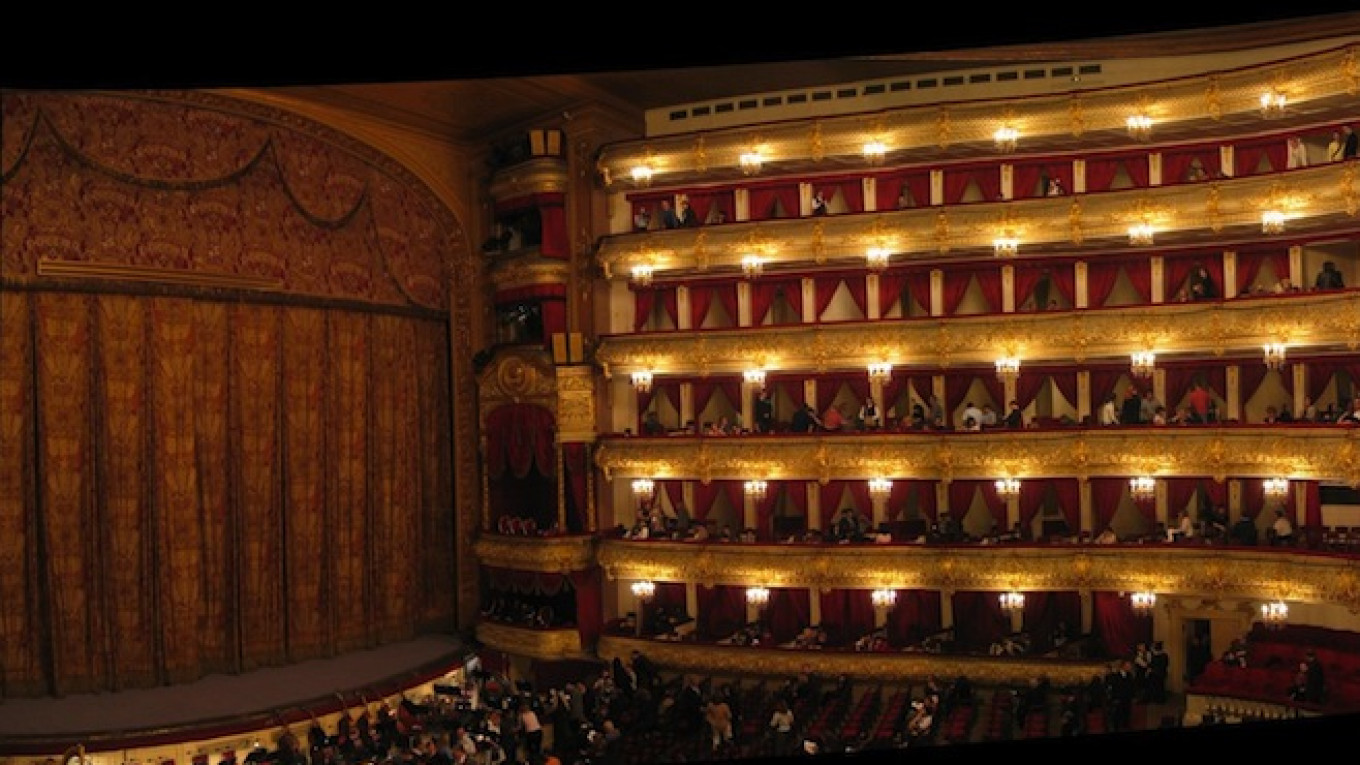Russia's Bolshoi Theater has a checkered history with Mozart's ever-popular 1786 opera "Le Nozze di Figaro" (The Marriage of Figaro). The Moscow theater did not present any staging of it until 1926. After that, there were three other stagings, one of which was performed 291 times over 20 years.
Now the company is offering a new staging by director Evgeny Pisarev. The new production is intended to accent the opera's lyricism and features a cast of mostly young singers, conducted by British maestro William Lacey.
"I am not going to present any radical concepts about how everyone misunderstood this opera until I — the genius—came along and explained it to the world," Lacey told Reuters Television, speaking before the April 25 premiere.
"No, I'd like to look at it in the exact opposite direction, which is that Mozart wrote this opera, it's his piece, and here is his score and this is where everything comes from ... I try and make the work about serving Mozart and not about advertising my own brilliance," Lacey said.
He invited singers from the Bolshoi and beyond to take part in the new staging, which will feature both up-and-coming singers as well as those who are already well known on the world's best stages.
Moscow-born bass Alexander Vinogradov takes the demanding role of Figaro, valet to the womanizing Count Almaviva, who has his sights set on Figaro's bride-to-be, Susanna.
The action as Figaro thwarts the count is one of the best drawing-room comedies in opera. Figaro is on stage most of the three-and-a-half hour running time.
"It is often forgotten that everything happens over the course of just one day and the full name of the opera ... is `The Crazy Day or the Marriage of Figaro' .... And at the end of such a day you are like this ... 'That's it, I am exhausted'," Vinogradov said as he prepared to go on stage.
This is director Pisarev's second staging of the story; he recently directed the Beaumarchais play on which the opera is based in an acclaimed production at the Pushkin Drama Theater. When he was invited to do the opera, the director had to devise a new interpretation.
"We are not showing real people, modern times. It is a kind of pastiche in the spirit of the Yves Saint Laurent, Coco Chanel fashion, or some paintings of Mondrian, of French and Italian movies from the 1960s," Pisarev said.
"It is some kind of a fantasy — bright, festive, more related to modern days than to some baroque pictures that nowadays look fictitious."
The cast hopes the staging will result in a surge of popularity for Mozart's masterpiece, and that the opera will become a regular part of the company's repertoire. The current production will run for eight performances.
A Message from The Moscow Times:
Dear readers,
We are facing unprecedented challenges. Russia's Prosecutor General's Office has designated The Moscow Times as an "undesirable" organization, criminalizing our work and putting our staff at risk of prosecution. This follows our earlier unjust labeling as a "foreign agent."
These actions are direct attempts to silence independent journalism in Russia. The authorities claim our work "discredits the decisions of the Russian leadership." We see things differently: we strive to provide accurate, unbiased reporting on Russia.
We, the journalists of The Moscow Times, refuse to be silenced. But to continue our work, we need your help.
Your support, no matter how small, makes a world of difference. If you can, please support us monthly starting from just $2. It's quick to set up, and every contribution makes a significant impact.
By supporting The Moscow Times, you're defending open, independent journalism in the face of repression. Thank you for standing with us.
Remind me later.






